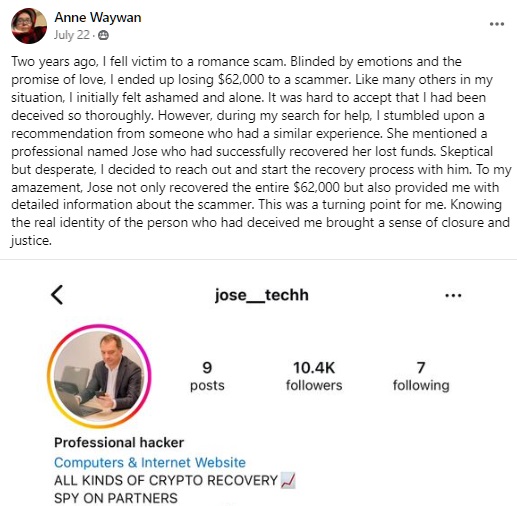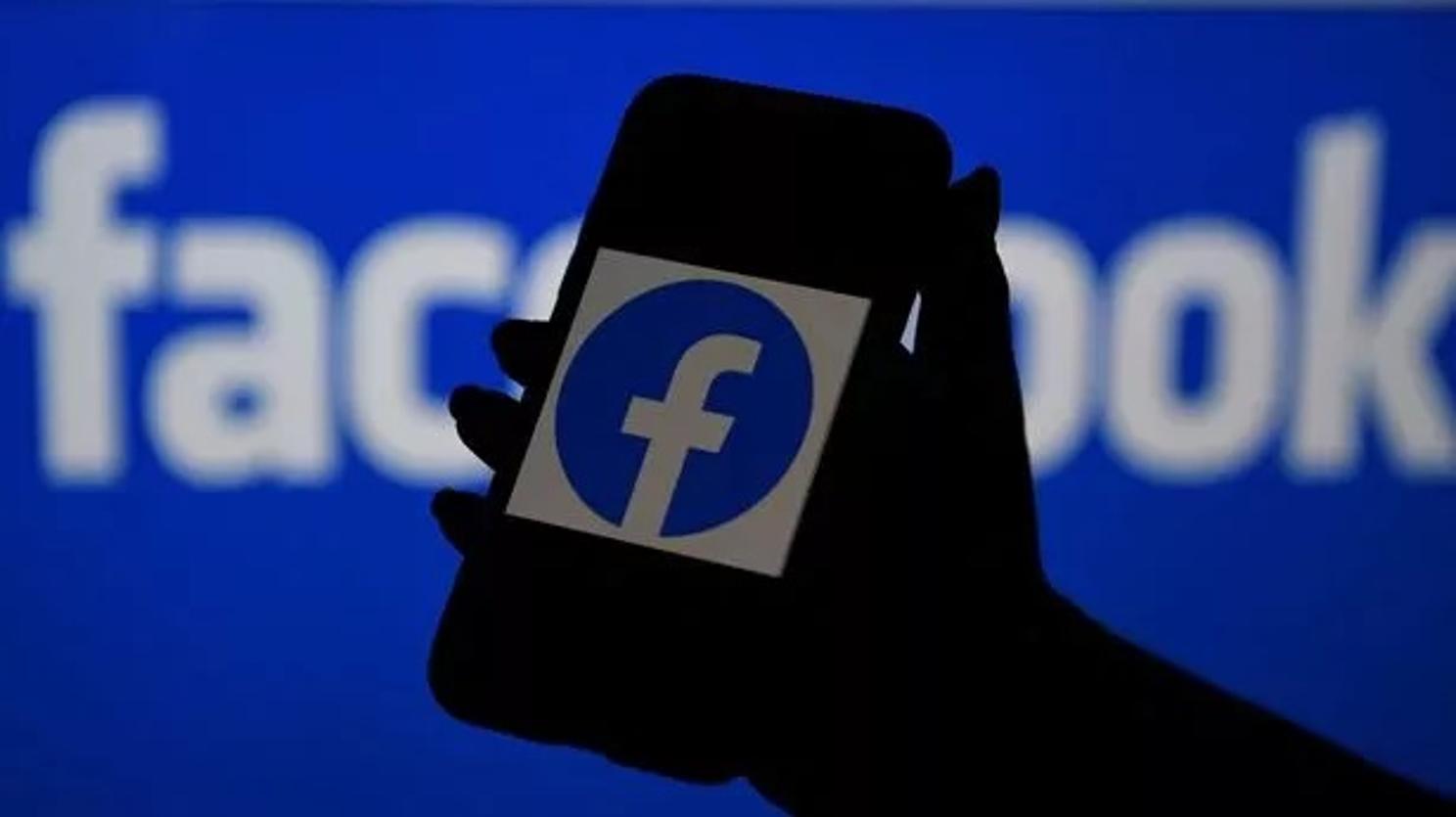Facebook (NASDAQ: META) has “some kind of ineffective system” in place to protect users from fraud. Yet, one Facebook group, brazenly named “SCAMMERS LIST UPDATE“, continues to operate under the guise of helping victims recover money, for victims of scams.
Despite numerous reports, Meta refuses to remove the group or suspend any of it’s members—many of whom are the very scammers who claim to be tracking down and recovering cash.
At first glance the group, SCAMMERS LIST UPDATE presents itself as a noble cause: a community dedicated to helping people track down scammers and recover lost money.
But behind the virtuous veil lies a network of fraudsters who charge victims fees to supposedly recover their stolen funds. This group offers a cruel irony—a scam to “help” victims of scams.
The group post image below, posted by a scammer with a fake profile illustrates a scam and the individual behind it—a scammer that Meta refuses to address or take action against after being reported. The account should have been suspened.
The scammer writes they were a victim of scam that lost $62,000. However, the post presented in the group leads readers to a link, a supposed scam recovery expert listed on Instagram.
However, the link leads you directly to the person ready to scam you. Once more, this has been reported to Meta who refuses to take action via the reporting tool.

Let’s be clear: once you’ve been scammed and sent money to a fraudster, that money is as good as gone. The idea that someone can retrieve it for you, especially a group of strangers on Facebook, is a dangerous and expensive lie.
What’s even more alarming is the composition of this group. Scammers posing as Westerners, using stolen photos and fake profiles, flood the group’s membership.
While many may appear to be everyday people, a deeper look reveals that the majority of profiles are run by organised scammers, often based in countries like Nigeria.
Despite the countless reports submitted by concerned users—flagging everything from fake profiles to the clear-cut scams taking place within the group—Meta refuses to take action.
Users have been met with the dismissive response: “We did not take any action.” The casual disregard for rampant fraud is nothing short of appalling. How can one of the world’s largest social media platforms, with access to cutting-edge technology, overlook such blatant abuse?
The negligence by Meta sends a disturbing message: scammers are safe under their watch. The company’s refusal to act protects the very criminals exploiting innocent people.
When victims, already humiliated and financially drained, turn to Meta to report the fraud, scams, fake profiles and money loss, they are met with silence and inaction.
It’s time our governments stepped in. Meta’s blatant refusal to take action against scammer-run groups and fake profiles is more than a technological oversight—it’s a moral failure.
This unchecked lawlessness needs to end. Our laws need to start evolving to hold social media platforms accountable for allowing scams to thrive on their watch. Meta’s complacency in the face of clear evidence of fraud is nothing less than complicity.
Meanwhile, banks, telecommunications companies, and social media platforms like Facebook are about to face hefty new penalties—up to $50 million—if they fail to crack down on fraudulent scams.
Assistant Treasurer Stephen Jones is expected to unveil draft legislation, pushing for increased accountability from social media giants and major corporations.
Vowing to position Australia among the nations with the strictest laws, he emphasized that the path forward involves imposing stricter obligations on the major players enabling these scams
“The Albanese Government is working to make Australia the toughest target in the world for scammers. We want to ensure that the best protections anywhere in the world are available to people here in Australia,”
“Australians are losing too much money to scams and while we’ve bucked the international trend where scams are doubling every year, losses are still far too high.” says Jones.
The unfortunate reality is that Facebook, once a platform for connecting people, is now a breeding ground for scams, and its unwillingness to root out the bad actors is endangering us all.
Former Sunrise host David Koch has been calling for action for years after scammers used his image and “dodgy quotes” to rob Australians of thousands of dollars.
“I had a bloke on the weekend contact me through Facebook, abusing me because he had lost $30,000 on a scam that used my picture and dodgy comments from me,” says Koch
Facebook has essentially become a breeding ground for scams, with the platform turning into a digital cesspool for fraudsters. From fake ads to misleading schemes, scammers are running rampant, preying on users every day.
What’s even more frustrating is Facebook’s apparent lack of action. Rather than cracking down on these scams, it seems like the platform is doing the opposite—allowing them to thrive.
Some scams are even promoted through its own ad system, as if giving fraudsters a stage to deceive people on a massive scale. It’s like Facebook is more concerned about cashing in on ad revenue than protecting users from blatant fraud.







